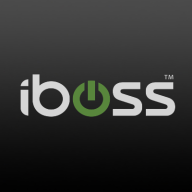


Prisma Access and Zscaler Zero Trust Exchange Platform are both strong competitors in the security solutions category. Based on user feedback, Prisma Access seems to have a slight upper hand due to its comprehensive next-gen firewall capabilities and deep security inspection features, whereas Zscaler is praised for its ease of use and strong cloud security attributes.
Features: Prisma Access is noted for next-gen firewall capabilities, scalability, and strong integration with Palo Alto's services like WildFire and Cortex Data Lake. Zscaler offers ease of use, seamless VPN integration, and strong cloud security with data loss prevention and a secure web gateway.
Room for Improvement: Prisma Access users suggest faster configuration, better third-party integration, and an improved support model. There are also concerns about latency. Zscaler users find the pricing high, desire more granularity in data inspection, and request improvements for the interface and notification systems.
Ease of Deployment and Customer Service: Both platforms support hybrid and public cloud deployments, with Prisma Access having stronger on-premises deployment capabilities. Zscaler is praised for simpler cloud-native configuration. Prisma Access's customer service is knowledgeable but can be slow for complex issues. Zscaler's support is responsive, though ticket resolution could be quicker.
Pricing and ROI: Prisma Access is regarded as expensive but users find its comprehensive security features justify its cost. Zscaler's pricing is seen as competitive for larger deployments with flexible user-based licensing. Both provide strong ROI through improved security and reduced infrastructure costs. Zscaler's scalable pricing model is particularly appealing to varied organizational sizes.
| Product | Market Share (%) |
|---|---|
| Zscaler Zero Trust Exchange Platform | 17.4% |
| Prisma Access by Palo Alto Networks | 13.7% |
| iboss | 2.4% |
| Other | 66.5% |



| Company Size | Count |
|---|---|
| Small Business | 6 |
| Midsize Enterprise | 6 |
| Large Enterprise | 5 |
| Company Size | Count |
|---|---|
| Small Business | 22 |
| Midsize Enterprise | 21 |
| Large Enterprise | 28 |
| Company Size | Count |
|---|---|
| Small Business | 16 |
| Midsize Enterprise | 11 |
| Large Enterprise | 41 |
Iboss offers a comprehensive cloud-based security platform valued for its scalability and autonomous features, ensuring robust security with easy deployment and management capabilities.
Renowned for its robust security architecture, Iboss integrates seamlessly within diverse networks, delivering efficient granular filtering and advanced content categorization. Its single pane of glass console provides ease of management, allowing rapid scalability suitable for rapidly deploying environments. Operates in BYOD setups due to inline filtering without device installation. Integration with cloud-based applications enhances user control, and features like SASE, SSL inspection, and ChatGPT risk protection stand as highlights. Despite its strengths, users have pointed out areas for enhancement like direct navigation in reports, SSL decryption, and better cloud integration while having room to improve data loss prevention.
What are the most important features of Iboss?The usage of Iboss spans educational institutions, specifically K-12, to enforce internet policies, protect data, and support remote work environments. It provides web filtering and security frameworks to ensure safe browsing. Its platform-as-a-service model offers flexibility for both cloud-based and on-premises requirements, integrating seamlessly to deliver enhanced security features suitable for various deployment needs including zero trust, CASB, and network security for work-from-home setups.
Prisma Access by Palo Alto Networks provides consistent security for all users and applications across your remote networks. Prisma Access grants users safe access to the cloud and data center applications and the internet as well. In addition, the solution combines all of your security and networking capabilities into a single cloud-delivered platform, enabling flexible hybrid workforces.
Prisma Access can be managed two ways:
Prisma Access delivers both networking and security services, including:
Prisma Access by Palo Alto Networks Features
Prisma Access by Palo Alto Networks has many valuable key features including: App-ID, User-ID, Device-ID, SSL Decryption, Dynamic User Group (DUG) Monitoring, AI/ML-Based Detection, IoT Security, Reporting, URL Filtering, Enterprise Data Loss Prevention (DLP), Digital Experience Monitoring (DEM)*, Logging, Policy Automation, Intrusion Prevention System (IPS), and many more.
Prisma Access by Palo Alto Networks Benefits
Some of the benefits of using Prisma Access by Palo Alto Networks include:
Reviews from Real Users
Below are some reviews and helpful feedback written by Microsoft Azure Synapse Analytics
users who are currently using the solution.
PeerSpot user Partha D., Global Network Tech Lead at a computer software company, speaks about his experience using the product, saying, "It protects all app traffic so that users can gain access to all apps. Unlike other solutions that only work from ports 80 and 443, which are predominantly for web traffic, Prisma Access covers all protocols and works on all traffic patterns... The most sophisticated attacks can arise from sources that are not behind 80/443."
Tejas J., a Sr. Cloud Security Architect at a computer software company, mentions that "it is geographically dispersed, and it sits on top of Google and AWS platforms. Therefore, you don't face the standard issues, such as latency or bandwidth issues, that you usually face in the case of on-prem data centers.”
Another PeerSpot reviewer, Max I., Associate Director at Cognizant, comments that "Security is absolutely spot-on, really top-notch. It's the result of all the components that come together, such as the HIP [Host Information Profile] and components like Forcepoint, providing end-user content inspection, and antivirus. It incorporates DLP features and that's fantastic because Prisma Access makes sure that all of the essential prerequisites are in place before a user can log in or can be tunneled into."
Zscaler Zero Trust Exchange enhances security with seamless cloud-based connectivity and VPN-less operation, offering integration with multiple identity providers and advanced security features, suitable for remote work environments.
Zscaler Zero Trust Exchange provides secure, adaptive connectivity without traditional VPNs, allowing organizations to replace legacy systems and bolster remote work security. The platform offers cloud-based protection, single sign-on, dynamic URL categorization, and scalable solutions. While advanced security features like DLP and threat protection enhance data protection, users may face issues with speed, connectivity, and some customization options. Integration challenges, latency due to multi-tenant hosting, reporting delays, and licensing costs require consideration. It supports secure internet access and private application security, ensuring traffic control and data compliance.
What are the key features of Zscaler Zero Trust Exchange?Zscaler Zero Trust Exchange is deployed across industries to secure remote access and enforce zero trust principles. Organizations in finance, healthcare, and technology sectors utilize it for secure internet access and visibility into cloud applications, enhancing performance and compliance in dynamic environments.
We monitor all ZTNA as a Service reviews to prevent fraudulent reviews and keep review quality high. We do not post reviews by company employees or direct competitors. We validate each review for authenticity via cross-reference with LinkedIn, and personal follow-up with the reviewer when necessary.